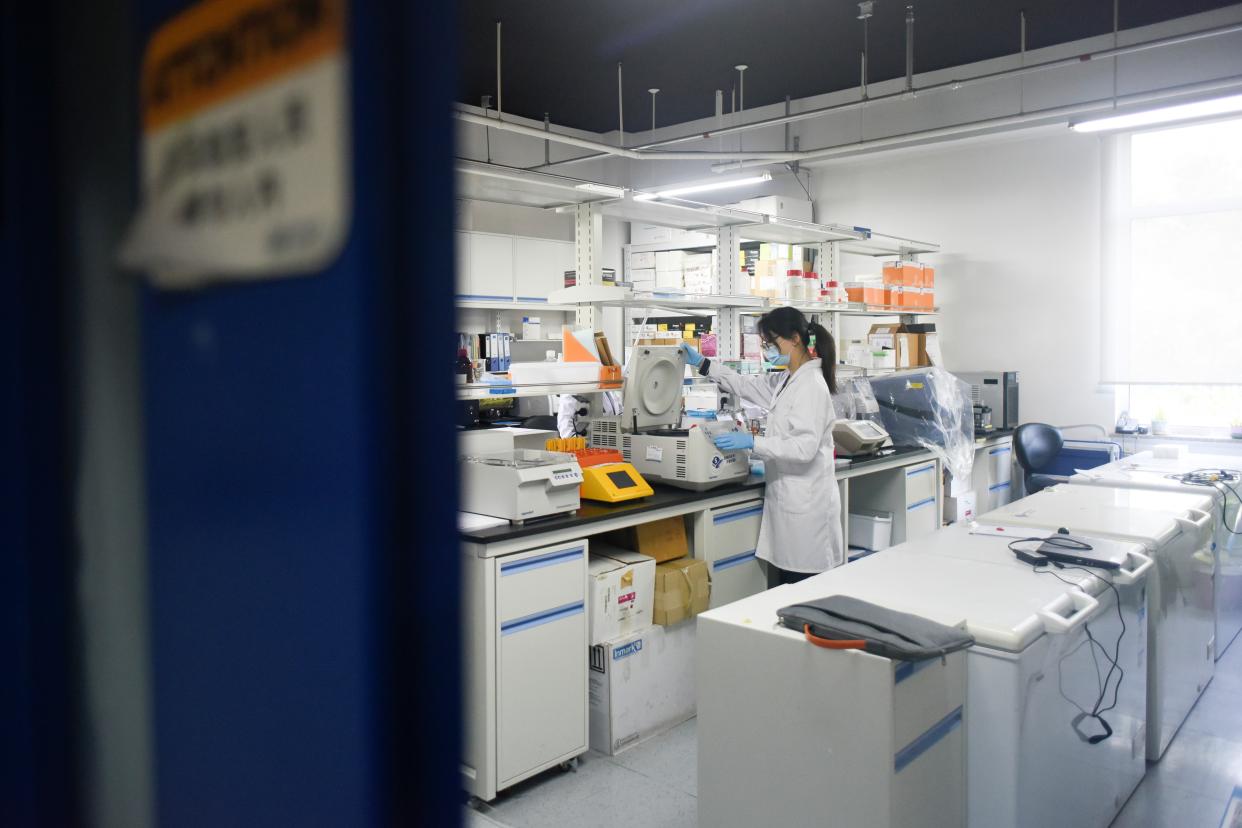Coronavirus vaccine 'hope and hype’ could compromise trust in drug, scientist warns

“Hype and hope” surrounding a potential coronavirus vaccine could compromise public trust in any drug, a social scientist has claimed.
Robert Dingwall, professor of sociology at Nottingham Trent University, also raised the prospect of initial vaccines “disappointing” by only providing “partial protection”.
No vaccine currently exists for COVID-19, with researchers across the world working to find one.
US researchers said on Wednesday that monkeys infected with COVID-19 had developed immunity from reinfection, a sign vaccines could succeed.
Researchers infected nine monkeys with COVID-19, the illness caused by the novel coronavirus. After they recovered, the team exposed them to the virus again and the animals did not get sick.
The findings suggest that they "do develop natural immunity that protects against re-exposure," said Dr Dan Barouch, a researcher at the Center for Virology and Vaccine Research at Harvard's Beth Israel Deaconness Medical Center in Boston, whose studies were published in the journal Science.
"It's very good news," Dr Barouch said.
In the second study, Barouch and colleagues tested 25 monkeys with six prototype vaccines to see if antibodies produced in response were protective.
They then exposed these monkeys and 10 control animals to SARS-CoV-2, the official name of the novel coronavirus.
All of the control animals showed high degrees of virus in their noses and lungs, but in the vaccinated animals, "we saw a substantial degree of protection," Dr Barouch said. Eight of the vaccinated animals were completely protected.
Several research teams have released papers – many of them not reviewed by other scientists – suggesting that a vaccine against the virus would be effective in animals.
This week, a closely watched vaccine being developed by scientists at Oxford University appeared to be protective following a small study of six monkeys. The preliminary findings have not undergone rigorous review by other scientists.
The UK government has poured millions of pounds into top vaccine programmes at Oxford and Imperial College London.
However, amid the high interest in a potential vaccine, Prof Dingwall warned on Wednesday that the constant reporting of each programme’s progress could create a “danger that it will raise public expectations about what science can deliver”.
He said: “Sociologists of science have written about the 'hype and hope' cycle in innovation, where news of progress is hyped in order to sustain the flow of resources necessary to deliver on people's hopes.
“However, this becomes increasingly difficult to sustain as actual delivery is increasingly postponed and the hype is seen to have been inflated.
“There is a particular danger here if the delivery comes quickly that it may disappoint in terms of what can be achieved, relative to the hype – possibly partial protection for a limited period, compared with the lifelong immunity of some childhood vaccines.”
Prof Dingwall added: “There is also a risk that confidence in the vaccine is compromised if there is any sense that it is being rushed to market, possibly at the expense of safety.
Read more: Where's Boris? Has the PM really avoided scrutiny during coronavirus?
“The message from governments needs to be quite sophisticated – that the research and development are being pursued at all deliberate speed, that the first generation of vaccines may be no more effective than flu shots, and that large companies will not be allowed to make windfall profits out of ordinary people's health.”
Other experts were positive about the initial findings. Prof Lawrence Young, Professor of Molecular Oncology, University of Warwick, said: “These are very encouraging studies which show that a simple DNA vaccine can induce protective immunity against SARS-CoV-2 in macaques and that a previous infection with the virus can also provide protection suggesting that previously infected individuals will be protected from re-infection.”
Prof Gordon Dougan, Jeffrey Cheah Biomedical Centre, Cambridge University, said: “These look fairly encouraging data on a first look. But I note... the animals would still be in ‘recovery’ from the first challenge and would need a much longer gap to really test immunity.”
It comes after a top government scientist warned people to prepare for living with the coronavirus for years to come.
Speaking at the daily coronavirus press conference on Monday, Prof Jonathan Van-Tam, the deputy chief medical officer for England, questioned “will we ever be out of this?” amid doubts over whether a vaccine will ever be produced.
Coronavirus: what happened today
Click here to sign up to the latest news, advice and information with our daily Catch-up newsletter
Read more about COVID-19
How to get a coronavirus test if you have symptoms
What you can and can’t do under lockdown rules
In pictures: How UK school classrooms could look in new normal
How public transport could look after lockdown
How our public spaces will change in the future
Help and advice
Read the full list of official FAQs here
10 tips from the NHS to help deal with anxiety
What to do if you think you have symptoms
How to get help if you've been furloughed

